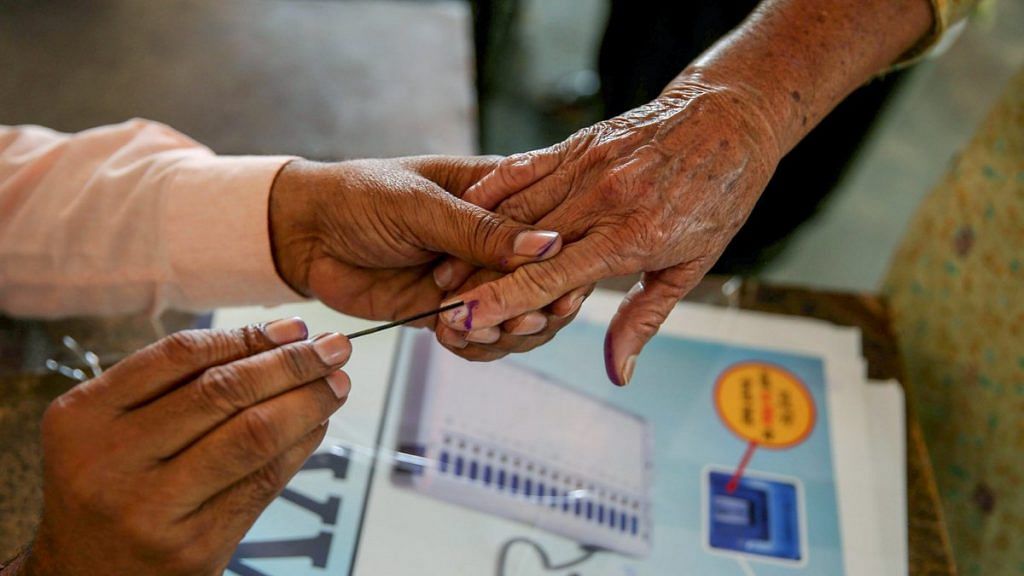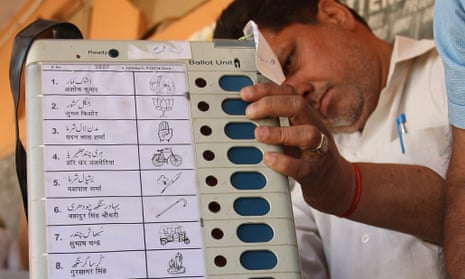Is India’s Election Vulnerable To Rigging? Renewed Debate Emerges Ahead of Voting
As India prepares for its national elections, a controversial debate has resurfaced yet again regarding the integrity of the electoral process. At the epicentre of this debate are electronic voting machines (EVMs), which some opposition parties claim can be manipulated to sway election outcomes. Led by Congress leader Rahul Gandhi, doubts surrounding the reliability of EVMs have once again come to the forefront, raising questions about the sanctity of India's democratic process. However, while concerns persist, experts argue that any potential manipulation would likely occur before the vote takes place, emphasizing the need for a nuanced understanding of the issue.

As India gears up for its national elections, a familiar debate resurfaced – can the electronic voting machines (EVMs) be manipulated to sway the outcome?
This age-old question has once again captured public attention as opposition parties, led by Congress leader Rahul Gandhi, cast doubt on the reliability of the EVMs.
However, while concerns persist, experts emphasize that any potential manipulation would occur before the vote takes place.
Gandhi, in his election campaign launch, not only targeted Prime Minister Narendra Modi but also took aim at the electronic voting system, claiming that the “soul of the king is in the EVM.”
The accusation is straightforward – the EVMs can be hacked, and Modi’s Bharatiya Janata Party (BJP) has allegedly benefited from such malpractice.
Despite multiple opinion polls favouring the BJP, allegations of electoral fraud persist, fueled by distrust in the EVMs’ integrity.

However, the mistrust surrounding EVMs is not new.
Opposition parties, including Congress, have long questioned the trustworthiness of these machines as critics argue that EVMs, while not connected to the internet, could still be susceptible to manipulation through programming that alters vote counts.
However, both the Election Commission of India (ECI) and the Supreme Court have dismissed these claims, citing a lack of conclusive evidence.
Still, as the nation prepares for the upcoming elections, Gandhi has made the issue of election fraud a central part of his campaign, advocating for a return to paper ballots, which were used until the late 1990s and counted manually.
However, this proposal was recently rejected by the Supreme Court, with the Election Commission labeling it as regressive. Despite this setback, the demand for paper ballots persists among opposition parties and their supporters.
Congress leader Digvijay Singh is also leading the charge against EVMs and heads a coalition of critics from various opposition parties and nonprofits.
Singh, a vocal opponent of electronic voting, also prefers and advocates for a return to traditional voting methods, citing concerns over the integrity of the electoral process.
While the debate over the reliability of EVMs continues, experts emphasize that any potential manipulation would likely occur before the actual voting takes place.

Steps Taken By EC
The ECI has implemented various safeguards to ensure the security and integrity of the electoral process, including rigorous testing of EVMs and strict protocols for handling and transporting them.
Furthermore, the widespread use of EVMs in state elections, many of which were won by opposition parties, is also cited to undermine the possibility of systematic electoral fraud.
In 2013, the Election Commission introduced the Voter Verifiable Paper Audit Trail (VVPAT) to instil trust in electronic voting machines (EVMs).
This system allows voters to visually confirm their ballot for seven seconds before it is securely stored in a box adjacent to the voting machine, providing a tangible record of their vote.
In 2017, the Election Commission made the decision to count votes on VVPAT slips in select polling stations across each constituency to randomly verify the accuracy of EVM tallies.
However, the Congress and other opposition parties are now calling for the extension of this practice to all polling stations nationwide.

Is There A Possibility Of Rigging
Despite these demands, seasoned election officials and independent analysts argue against questioning the credibility of EVMs.
Former Chief Election Commissioner SY Quraishi firmly asserts that any potential election rigging cannot occur through EVM manipulation.
He endorses counting VVPAT slips to restore trust in the Election Commission’s impartiality and election integrity, stating the importance of thorough verification, even if it requires additional time to reconcile VVPAT counts with EVM tallies.
However, Quraishi stresses that any electoral malpractice typically occurs before the actual voting process, the notion that elections can be influenced long before they take place, spotlighting the importance of comprehensive preparations and safeguards.
Further, before each election, the Election Commission launches awareness campaigns urging voters to verify their registration details to ensure accuracy.
Hence, Quraishi contends that blaming the Election Commission for oversights in voter registration is unjustified if voters fail to participate in this verification process.
Nonetheless, maintaining accurate and fair electoral rolls presents significant challenges.
An anonymous Election Commission official acknowledges the complexities involved in updating rolls, particularly in identifying and removing duplicated or deceased voter entries.
The aftermath of the COVID-19 pandemic has further complicated this task, with discrepancies in reported death tolls posing additional challenges.
Further, Civil society activists, such as Major General (retired) Anil Verma, express concerns that the revision of electoral rolls may be exploited to disenfranchise certain voters deemed unfavourable to the ruling government.
Verma, who leads the Association for Democratic Reforms, asserts that the Election Commission’s efforts in this regard are insufficient, citing potential biases and shortcomings in the electoral roll revision process.
Leading up to the 2019 elections, concerns arose as activists reported the removal of tens of millions of Muslim and Dalit voters from the electoral list, sparking apprehensions of a suppressed turnout among segments of the population that historically do not align with Prime Minister Modi or the BJP.
Following the legislative elections in Chhattisgarh last year, Congress leader Praveen Chakravarty conducted an analysis of various polls and studies.
According to her, despite projections favoring the Congress over the BJP in seven pre-poll surveys, 10 exit polls, and two post-poll studies, the Congress ultimately lost by a margin of 4 percentage points.
This discrepancy prompted questions about the accuracy of polling data.
Sanjay Kumar, a professor at the Centre of Study of Developing Society in New Delhi, offered insight into the perceived gap between survey predictions and election outcomes.
He clarified that a disparity between survey findings and the final results does not necessarily indicate electoral manipulation.
Kumar emphasized that he had not observed any evidence of widespread rigging in elections conducted since the introduction of EVMs.
The Last Bit, while questions regarding the vulnerability of EVMs persist, evidence supporting claims of widespread manipulation remains elusive.
As India prepares for its national elections, it is essential to maintain trust in the electoral process while addressing legitimate concerns through transparency and accountability measures.
Despite persistent doubts, the democratic process in India remains strong, with mechanisms in place to address concerns and uphold the integrity of elections.




